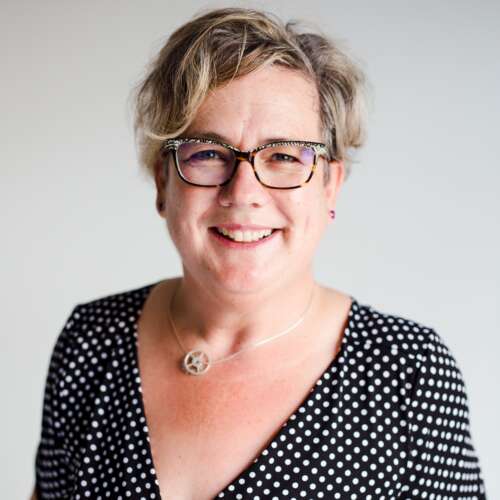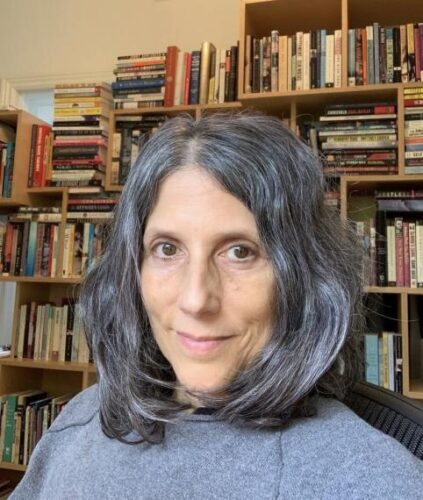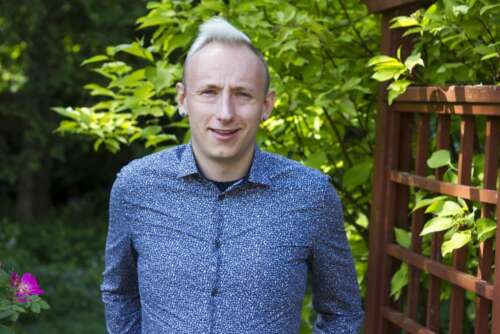Gaining the skills and knowledge to drive meaningful change in society is the impetus behind Sexualities, Genders and Social Change (SXGN), a new multidisciplinary University of Guelph degree program.
Set to launch in fall 2022, SXGN is part of U of G’s bachelor of arts program.
The degree explores the extensive scholarship around human identity, embodiment and self-expression and the connections of these topics to social, political and cultural systems.

Feminism, colonialism, LGBTQ+, race, indigeneity and masculinity will be among the many areas studied, with subject matter and methods from the arts, humanities and social sciences being incorporated into core courses.
“The new Sexualities, Genders and Social Change program is exciting for so many reasons,” said Dr. Samantha Brennan, dean of the College of Arts. “It will bring excellent teaching and research to our students in innovative ways. It will challenge our thinking and equip our graduates to engage with critical issues of our time.”
The program, she added, will connect the interdisciplinary research strength of the college to undergraduate teaching, bringing research from the growing field of sexuality and gender studies into the classroom.
“The launch of the SXGN program is particularly timely,” said Dr. Karyn Freedman, professor in the College of Arts, who was part of the committee that developed the program. “Issues connected to sexuality and gender are always pressing but especially so right now, given the heightened social and political climate on these matters.”
Sexualities, Genders and Social Change program to challenge thinking

One example is the increasing visibility of transgender and non-binary people, added Freedman.
“This has been life-affirming and life-saving for many people on the margins of society. But at the same time, it has triggered a rise of anti-trans prejudice, with serious and in some cases life-threatening consequences including the denial of basic health care for trans people in the United States. We are at a critical juncture.”
By addressing issues of gender expression and identity through scholarly inquiry, SXGN will fill a need for students who want to engage with these issues in public discourse and examine how they intersect with contemporary social justice movements like #MeToo, Land Back and Black Lives Matter, she said.
Core SXGN courses will introduce students to the key concepts and vocabulary of the continually evolving subject of identity expression. Students will work through case studies, historical examples and contemporary issues to explore the complexity of the human condition.
Dr. Adam Davies, a professor in the College of Social and Applied Human Sciences who also participated in the development of SXGN, said the program can assist students in imagining different and better futures.
“The program provides language and theory for students to help them conceptualize the interlayered ways in which systemic racism, colonialism, heterosexism, cissexism and the surveillance and marginalization of queer and trans people continue to impact queer and trans people of colour.”
Structures of oppression are entrenched in the framework of society, he said.
Aim of program is to help foster social change

“Giving students tools to deconstruct the current foundations of our modern Western state can assist in providing outlets for students beyond the normativity of day-to-day violence. Students in higher education are continually indoctrinated into a system that cultivates the perpetuation of the status quo. This program aims to address this and create space for subjugated knowledge on Guelph’s campus.”
A fundamental part of the program is bridging theoretical and practical knowledge. Through practical outreach and advocacy, students will work together with community partners on projects such as fundraisers, symposiums, performances or integrated research.
The aim of the program is to provide a strong foundation that will foster social change, said Freedman.
“One central way the program promotes social change is by addressing head-on issues of inequality, oppression, and marginalization that lie at the heart of social justice movements.
“Students will explore the history, theory and activism of feminism, decolonization, queer studies, Black studies, disability studies and so on. This intersectional and interdisciplinary approach to issues of gender and sexuality provides fertile ground for fostering social change.”
SXGN will help prepare students for varied careers, including as government managers in health and social policy, development and program administration; human resources professionals; education policy researchers and consultants; social workers; and health information management.
Organizers hope this program encourages students to think beyond “our dominant system,” said Davies.
“Through this space, students can use theory to imagine a society and system beyond what currently exists and hopefully also engage with work that reflects their lived experiences. This is the magic of the intersections of the critical social sciences and humanities, and I am excited to be a part of this work.”
Contact:
Dr. Karyn Freedman
karynf@uoguelph.ca
Dr. Adam Davies
adam.davies@uoguelph.ca